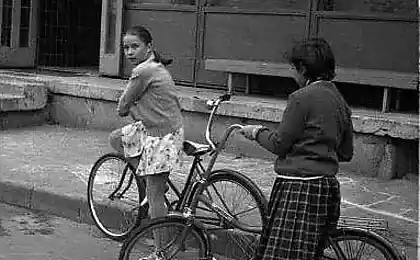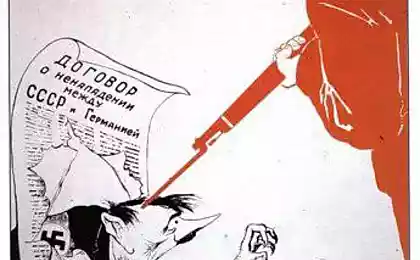211
Famous Czech and French writer Milan Kundera flew to heaven, the master of the word was 94 years old
The sad news stirred up the cultural world. A famous Czech-French writer has passed away. Milan Kundera. The following year he would have celebrated his 95th anniversary, but fate decreed otherwise. Today we want to honor the memory of the cult novelist and tell you a little more about him.
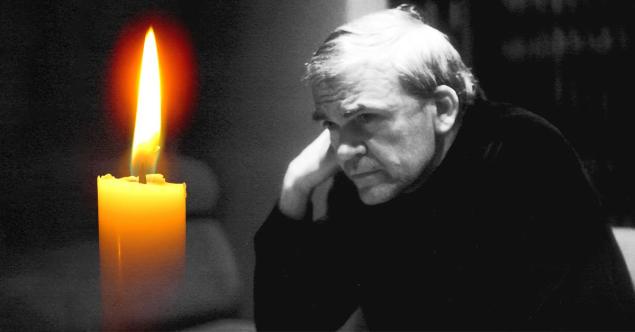
Milan Kundera is known as a Czech and French writer, although he was born in Czechoslovakia when it still existed. In 1975, the author moved to France. He wrote in both Czech and French. Interestingly, according to the rules of these two languages, the prose surname is pronounced differently: in Czech, the stress falls on the first syllable, and in French - on the last.
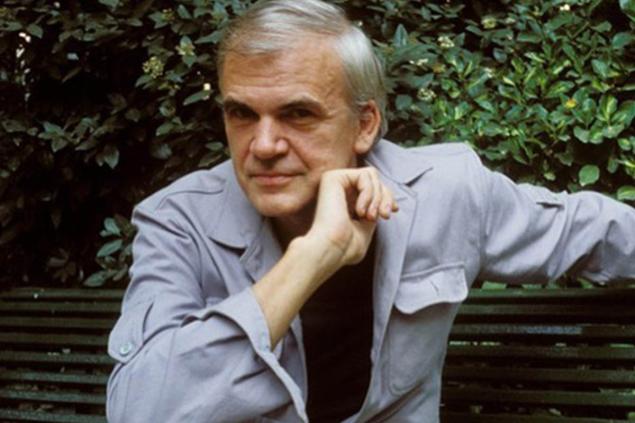
Milan wrote his first poems while still a schoolboy. When World War II began, he was only 10 years old. But even then he began to work as a laborer. He received higher education in Prague. Both study and further work were related to art. For example, he worked in literary journals and taught world literature at the film faculty of one of the Czech universities.
For several years he was a member of the Communist Party of Czechoslovakia. However, he was soon expelled from the CPC for anti-communism. And after some time, the prose writer was again accepted into the party.
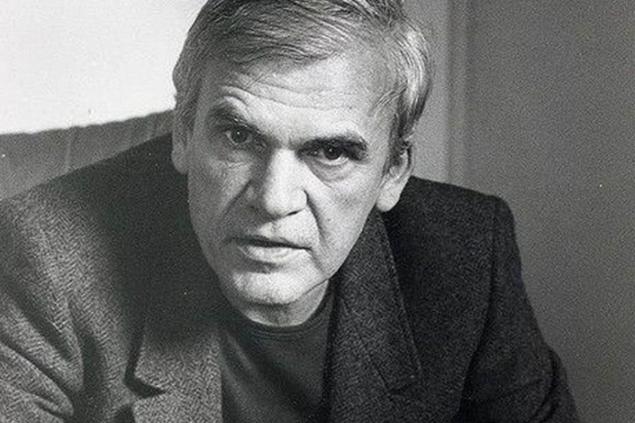
Instagram/@hadi. 1979 Around the same time, the world saw his first book. Milan’s first novel, The Joke, dealt with the situation of the Czech intelligentsia in Soviet reality. Even then, Kundera said that society and the political system of the country should be democratized. These were the first bells that led to the events of the Prague Spring.
When Soviet troops occupied Czechoslovakia, the writer took an active part in the public life of his homeland. He went to rallies and demonstrations, speaking out strongly against what was happening. As a result, his books were banned from publishing, and those that were already in libraries were simply seized. In addition, Milan could no longer teach at the university.
However, Kundera did not stop writing. At that time, from under his pen came the surreal novel “Life is not here” and the love novel “Waltz for goodbye”. In 1975, the writer moved to France. He was invited to teach at the University of Rennes. Back in 1990, he wrote in two languages, but then switched to French, while prohibiting anyone from translating his novels into Czech.
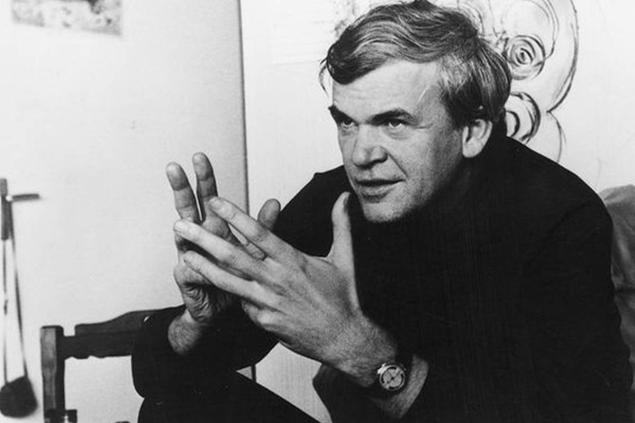
Milan himself did not call himself a Czech or French author. He gravitated toward definition. European writer and European literature. At the same time, the novelist honestly admitted that the French language expanded the horizons of his work and allowed more people around the world to get acquainted with his works.
Music in the life of the writer occupied the same important place as literature. First, he was born into a family of musicians, so he literally grew up on the sound of the piano. Secondly, as a child, he learned to play and during the Second World War worked part-time, playing jazz.
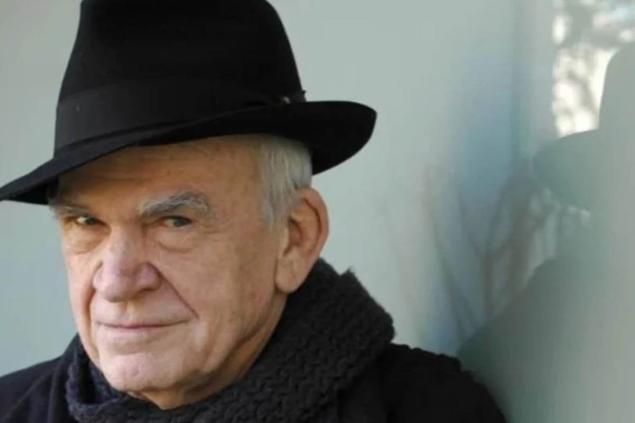
Milan composed his own compositions and enjoyed the works of famous composers. For example, when he was deprived of the opportunity to teach and print his books in the 70s, he found salvation in the works of Yanis Xenakis: “I had the opportunity to love the music of Yanis Xenakis in the darkest period of my own life and the life of my native country.”
In describing his lyrics, Kundera often used musical terms. For him, novels and novels were built according to the laws of musical composition. In addition, the author loved polyphony, that is, the creation of several storylines in one work, which were equal.

Instagram / @doch_docenta After writing The Farewell Waltz, Milan thought of ending his writing career. He seemed to say everything he had to say. However, moving to France dramatically changed the life of the writer. So the novels “The Book of Laughter and Forgetting” and “The Unbearable Lightness of Being” appeared. The latter almost immediately became a bestseller.
If you want to read any of Kundera's novels, you can start with this book. Although Milan is no longer with us, he has left a great legacy. And it's expensive!

Milan Kundera is known as a Czech and French writer, although he was born in Czechoslovakia when it still existed. In 1975, the author moved to France. He wrote in both Czech and French. Interestingly, according to the rules of these two languages, the prose surname is pronounced differently: in Czech, the stress falls on the first syllable, and in French - on the last.

Milan wrote his first poems while still a schoolboy. When World War II began, he was only 10 years old. But even then he began to work as a laborer. He received higher education in Prague. Both study and further work were related to art. For example, he worked in literary journals and taught world literature at the film faculty of one of the Czech universities.
For several years he was a member of the Communist Party of Czechoslovakia. However, he was soon expelled from the CPC for anti-communism. And after some time, the prose writer was again accepted into the party.

Instagram/@hadi. 1979 Around the same time, the world saw his first book. Milan’s first novel, The Joke, dealt with the situation of the Czech intelligentsia in Soviet reality. Even then, Kundera said that society and the political system of the country should be democratized. These were the first bells that led to the events of the Prague Spring.
When Soviet troops occupied Czechoslovakia, the writer took an active part in the public life of his homeland. He went to rallies and demonstrations, speaking out strongly against what was happening. As a result, his books were banned from publishing, and those that were already in libraries were simply seized. In addition, Milan could no longer teach at the university.
However, Kundera did not stop writing. At that time, from under his pen came the surreal novel “Life is not here” and the love novel “Waltz for goodbye”. In 1975, the writer moved to France. He was invited to teach at the University of Rennes. Back in 1990, he wrote in two languages, but then switched to French, while prohibiting anyone from translating his novels into Czech.

Milan himself did not call himself a Czech or French author. He gravitated toward definition. European writer and European literature. At the same time, the novelist honestly admitted that the French language expanded the horizons of his work and allowed more people around the world to get acquainted with his works.
Music in the life of the writer occupied the same important place as literature. First, he was born into a family of musicians, so he literally grew up on the sound of the piano. Secondly, as a child, he learned to play and during the Second World War worked part-time, playing jazz.

Milan composed his own compositions and enjoyed the works of famous composers. For example, when he was deprived of the opportunity to teach and print his books in the 70s, he found salvation in the works of Yanis Xenakis: “I had the opportunity to love the music of Yanis Xenakis in the darkest period of my own life and the life of my native country.”
In describing his lyrics, Kundera often used musical terms. For him, novels and novels were built according to the laws of musical composition. In addition, the author loved polyphony, that is, the creation of several storylines in one work, which were equal.

Instagram / @doch_docenta After writing The Farewell Waltz, Milan thought of ending his writing career. He seemed to say everything he had to say. However, moving to France dramatically changed the life of the writer. So the novels “The Book of Laughter and Forgetting” and “The Unbearable Lightness of Being” appeared. The latter almost immediately became a bestseller.
If you want to read any of Kundera's novels, you can start with this book. Although Milan is no longer with us, he has left a great legacy. And it's expensive!
Chef Evgeny Klopotenko urges not to miss the cherry season and prepare a wonderful cake with a summer berry
If you still have these vampire plants in your house, take them outside immediately to avoid failure.









